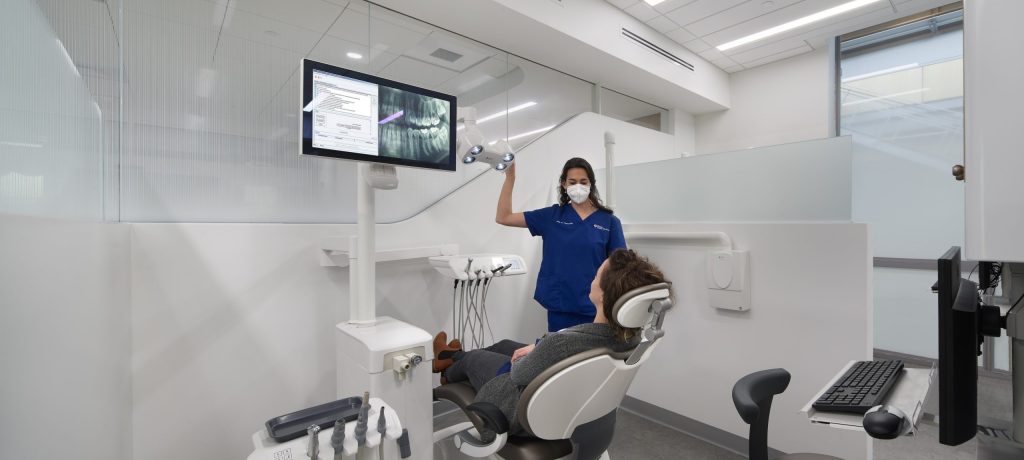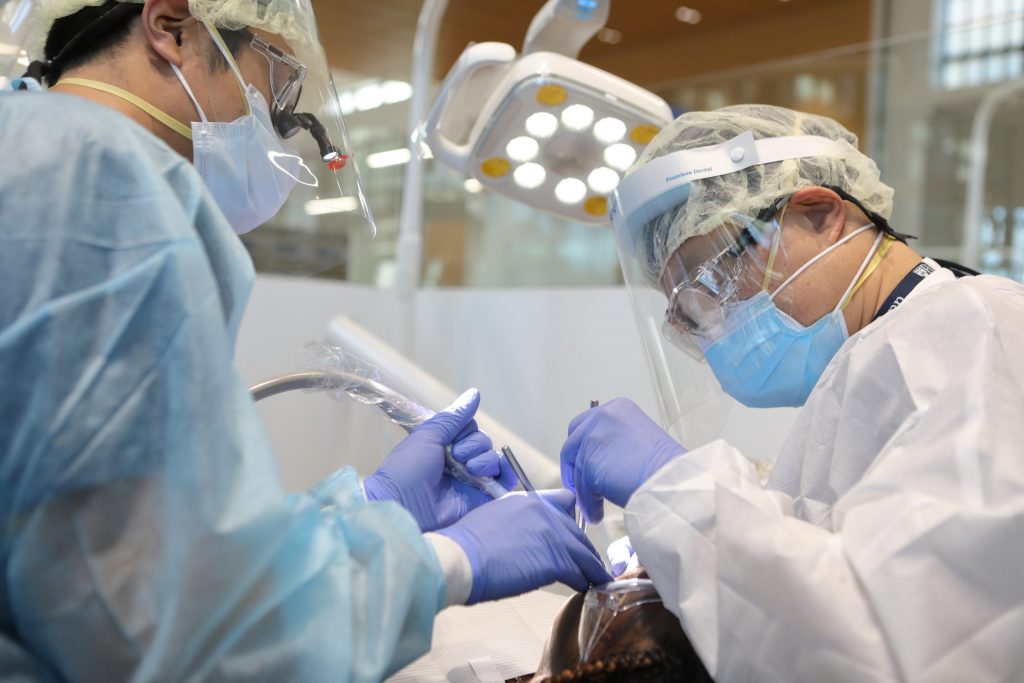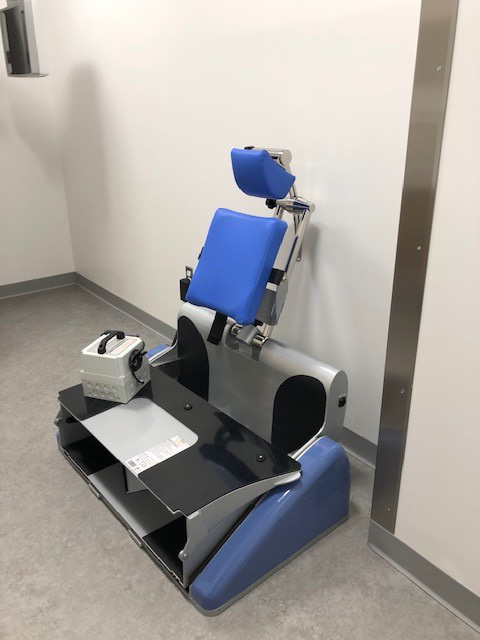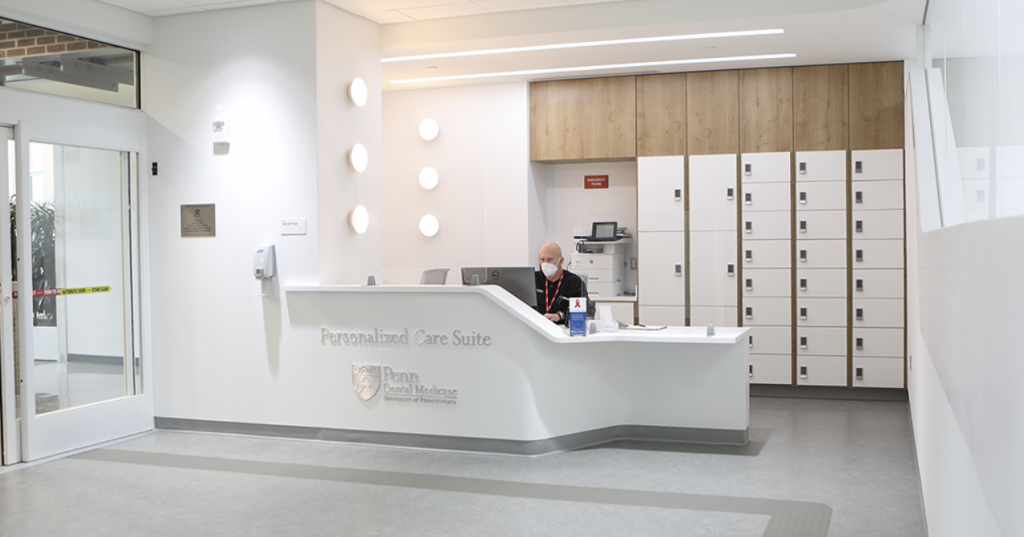Information Library
Start Reading

Physical disabilities prevent too many individuals from enjoying the best oral health possible. Their limited mobility and dexterity are two reasons.
Another major reason is a persistent lack of facilities and personnel providing dentistry for disabled patients. Among dentists who don’t offer special needs dentistry, “not having a dental office . . . properly equipped to accommodate” patients with disabilities was one of the most frequently cited reasons.
As a result, people with a disability—including physical and/or developmental disabilities that require them to use a wheelchair—”have long had higher prevalence and severity of oral disease than the general population,” according to the CareQuest Institute for Oral Health.
 Professional dentistry for disabled patients, physically or otherwise disabled, is vital. These individuals encounter challenges in maintaining good oral health that nondisabled individuals don’t encounter.
Professional dentistry for disabled patients, physically or otherwise disabled, is vital. These individuals encounter challenges in maintaining good oral health that nondisabled individuals don’t encounter.
Physical disabilities can make it hard for people to brush and floss their teeth properly. This difficulty increases their risk of tooth decay, gum disease, and other oral health problems.
Certain disabilities may also require individuals to take medications that can negatively affect oral health. These effects can include dry mouth or increased dental infections.
Because patients with physical disabilities already face oral health challenges, regular checkups and cleanings are especially critical. They can identify and address issues early, and keep problems from getting worse.
 Patients with physical disabilities face several obstacles to dental treatment.
Patients with physical disabilities face several obstacles to dental treatment.
As mentioned, one of the most prevalent is physical access. Many dental offices don’t have ramps, elevators, or wide hallways. As a result, patients in wheelchairs or with other mobility issues can have trouble entering and moving around.
Additionally, standard dental equipment and treatment chairs may not be suitable for patients with physical disabilities. Patients in wheelchairs, for instance, often cannot or do not want to leave their chairs for a standard dental chair.
Ensuring patient comfort and safety during dental care is another challenge. Dentists may need to modify techniques and equipment to properly position and support patients. However, many dentists lack the training and skill to make these accommodations.
If you’re looking for a provider of dentistry for disabled patients, your checklist must include these three criteria:
Special needs dentists have the additional training, clinical expertise, and understanding needed to provide effective services. They are familiar with physical, psychological, and emotional issues associated with a disability. They are adept at providing treatments tailored to patients’ specific needs.
They also know what impact patients’ other medical conditions and considerations can have on oral health, and will tailor treatment accordingly. They collaborate with other healthcare providers to ensure a holistic approach to the patient’s oral health when needed.
 Patients and their caregivers should also look for accessible offices. Wheelchair ramps or elevators can ensure safe and easy entrance. Wider doorways and hallways as well as spacious treatment rooms can accommodate wheelchairs and other mobility aids comfortably.
Patients and their caregivers should also look for accessible offices. Wheelchair ramps or elevators can ensure safe and easy entrance. Wider doorways and hallways as well as spacious treatment rooms can accommodate wheelchairs and other mobility aids comfortably.
Some dental offices have wheelchair-lift systems or hoists for safely transferring wheelchair-bound patients to the dental chair. Some dental chairs may be modified or replaced with models that accommodate patients who have specific positioning requirements. And, other special needs dental offices treat patients while they stay in their wheelchairs.
Special needs dentists strive to create a supportive, stress-free atmosphere that allows patients to relax during treatment. They can break tasks down into small, manageable steps, and use positive reinforcement to encourage cooperation.
Special needs dentists also provide supportive guidance and education about proper oral hygiene techniques. They can and do recommend such assistive devices as adapted toothbrushes or flossing aids. These aids make it easier for patients to perform oral care at home, helping maintain good oral health.
In the Personalized Care Suite in the Care Center for Persons with Disabilities, Penn Dental Medicine (PDM) provides the high-quality, comprehensive, effective dental care adult patients with physical and other disabilities need.
In every aspect—its elevators, extra-wide corridors, spacious six-chair open treatment bay, and more—the Care Suite is designed to let patients with disabilities easily access, navigate, and receive treatment. Patients in wheelchairs especially benefit from our wheelchair lift room and our three hover chair rooms.
And the care our patients receive is world-class. Every student in the University of Pennsylvania School of Dental Medicine rotates through the Care Center. They serve patients with physical and other disabilities under the supervision of an experienced faculty. They learn how to deliver the customized, compassionate care patients with disabilities deserve.
Our comprehensive approach, state-of-the-art technology and techniques, and commitment to including all patients have made the PDM Care Center a leading destination for dentistry for disabled patients in Philadelphia and the Delaware Valley.
To discover more about our services, download your free copy of our eBook, Overcoming Oral Health Barriers for People with Disabilities.